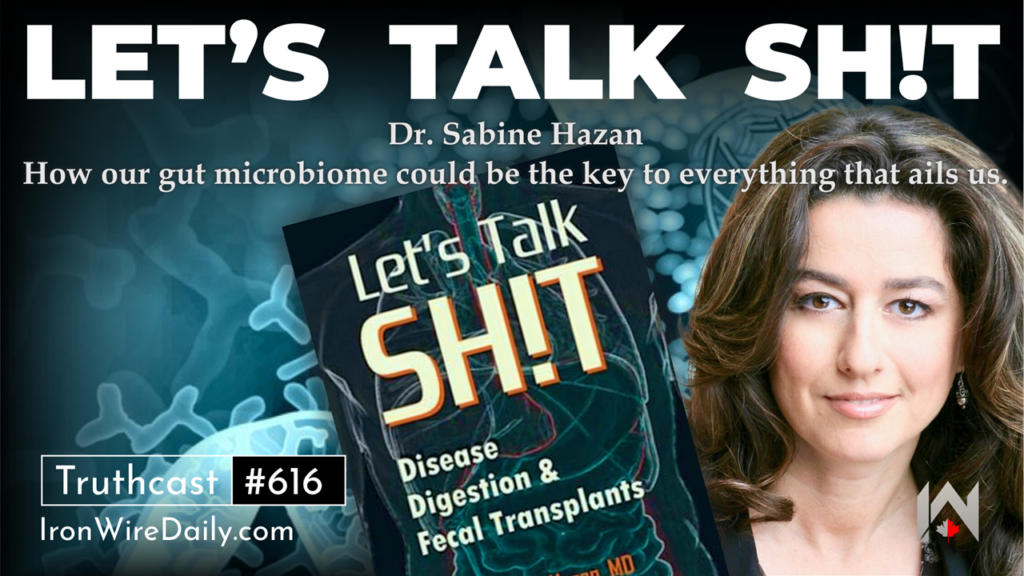Glyphosate Causes Permanent Damage to Reproductive Organs, Affects Fertility
Source: Children’s Health Defense
Story at a glance:
- Research shows that glyphosate exposure, even at “safe” levels, causes hormone imbalance, oxidative stress and permanent damage to reproductive organs like the ovaries and uterus.
- Exposure reduces estrogen and follicle-stimulating hormone (FSH) while increasing testosterone and progesterone, creating conditions similar to polycystic ovarian syndrome, or PCOS. It also impairs egg quality and lowers the chance of successful fertilization and implantation.
- Glyphosate alters gene expression in the uterus of offspring who were never directly exposed. These inherited disruptions impact fertility for your children and grandchildren.
- The chemical shuts down mitochondria, blocks detox enzymes and depletes essential minerals, setting off a chain reaction that affects everything from hormone production to brain function.
- Avoiding glyphosate-contaminated food, filtering your water, eliminating seed oils and healing your gut are key steps to reverse its impact and regain reproductive and metabolic health.
Glyphosate-based herbicides now account for 19% of all herbicides used globally, with over 240 million pounds sprayed annually across American farmlands. However, glyphosate doesn’t stay in the soil — it shows up in your body as well.
In fact, measurable glyphosate residues have been detected in the urine of 60% to 80% of the general U.S. population, including pregnant women and children, meaning you’re likely carrying trace amounts of this chemical.
Glyphosate is the active ingredient in Roundup, a product first released by Monsanto in the 1970s. It’s often marketed as “safe” because humans don’t have the same enzyme pathways it targets in plants. However, our gut bacteria do have this pathway, so it can affect the gut microbiome.
As explained in Stephanie Seneff, Ph.D.’s book “Toxic Legacy,“ glyphosate also binds strongly to toxic metals such as aluminum, and has been shown to make the intestinal barrier and the blood-brain-barrier more porous. As a result, heavy metals can gain entry into these organs.
Many studies have also raised the alarm regarding its harmful effects on reproductive health. One recent example highlights how it particularly affects females’ ability to reproduce.
Glyphosate alters reproductive tissues in ways you can’t feel until it’s too late
A comprehensive review published in Reproductive Sciences pulled together animal and human studies from PubMed showing how glyphosate damages reproductive organs, disrupts hormones and alters the quality of reproductive cells.
The study emphasized that glyphosate’s effects aren’t limited to short-term exposure — they accumulate over time, increasing your risk of infertility, developmental issues in your offspring, and chronic reproductive diseases that might not surface until much later in life.
Even ‘safe’ levels of glyphosate disrupt your reproductive system
The research reviewed a mix of healthy animals, pregnant females and cell lines exposed to levels of glyphosate considered safe by regulatory standards.
Despite these being “acceptable,” the exposure still caused hormone imbalance, oxidative stress, damage to developing eggs and shifts in gene expression that could impact future pregnancies. These effects showed up repeatedly in different test models.
Glyphosate causes visible damage to the ovaries
In female piglets fed glyphosate-contaminated feed, researchers observed visible ovarian damage: tissue shrinkage, fat accumulation and cell calcification.
In rats exposed in utero, the number of healthy follicles (which hold your eggs) decreased significantly while abnormal ones increased. The damage is permanent, as follicles don’t regenerate once damaged.
Hormone disruption from glyphosate mimics PCOS-like patterns
Animals exposed to glyphosate showed adverse hormone effects. Estrogen and FSH levels dropped, while testosterone and progesterone rose. Without healthy estrogen and FSH levels, your eggs won’t mature properly and the uterus will not be prepared for pregnancy.
In one study, glyphosate increased signals like luteinizing hormone-releasing hormone, pushing hormone rhythms toward a PCOS-like state, which makes conception harder and disrupts other systems like insulin sensitivity.
The uterus becomes overly sensitive to estrogen, setting you up for disease
Aside from suppressing estrogen, glyphosate also makes the uterus respond too strongly to even low doses. This hyper-responsiveness is linked to endometrial hyperplasia, a condition where the uterine lining grows too thick.
This raises the risk of irregular bleeding, pain and endometrial cancer. Rats exposed to glyphosate showed changes that would make this overgrowth much more likely.
“Collectively, these findings raise concerns about potential associations between GBH [glyphosate-based herbicide] exposure and female reproductive system diseases, including PCOS, endometriosis, and subfertility/infertility,” the researchers said.
Exposure to glyphosate during pregnancy causes generational damage
The study also notes that the timing of exposure matters, with glyphosate’s effects being especially harmful during fetal development or pregnancy.
In one study, glyphosate exposure in pregnant animals altered gene expression in the uteruses of their offspring, even though they weren’t directly exposed at all.
This kind of genetic disruption, known as epigenetic change, doesn’t mutate your DNA but changes how it’s read, and these changes could be passed on to your children and grandchildren.
Real-world herbicide formulas are even more toxic than glyphosate alone
Glyphosate is rarely used alone in farming. It’s typically combined with chemical boosters like polyoxyethylene tallow amine (POEA) to help it penetrate plant cells. These additives make this chemical even more toxic.
Aromatase, the enzyme that turns testosterone into estrogen, was severely inhibited when glyphosate and POEA were used together. That disruption happened even at doses 100 times lower than the amount sprayed on crops, showing just how potent the mix really is.
Hormonal imbalance caused by glyphosate breaks reproductive rhythm
When aromatase is blocked, estrogen drops and testosterone builds up. This shift messes up your entire reproductive system — cycles become irregular, ovulation becomes unreliable and your uterus is unable to support implantation. Even if you manage to conceive, your body will not be able to maintain a healthy pregnancy.
Glyphosate damages eggs at the cellular level, making pregnancy harder
In mouse studies, glyphosate interfered with spindle fibers in the egg — these are structures that organize chromosomes during cell division. When those break down, eggs don’t mature correctly and could carry genetic defects.
Glyphosate also drained zinc and raised oxidative stress by increasing harmful reactive oxygen species, or ROS, damaging egg membranes, DNA and internal protein structures that are needed for fertilization.
Oxidative stress skyrockets while your antioxidant defenses are wiped out
One study showed glyphosate exposure raised malondialdehyde, or MDA, which is a sign of oxidative cell damage. At the same time, your natural antioxidant enzymes like superoxide dismutase, or SOD, and glutathione peroxidase, or GPx, were suppressed.
That means your body’s “clean-up crew” was disabled just when the damage was ramping up. This is especially dangerous in tissues like the ovaries and uterus, which are highly sensitive to hormonal and oxidative shifts.
Zinc depletion makes the damage worse and harder to stop
Zinc helps the body fight oxidative stress, but glyphosate grabs onto zinc and removes it from circulation. In animal studies, zinc supplements helped reduce the damage, highlighting how central that mineral is to your reproductive defense system.
Glyphosate is present in your daily life without you necessarily realizing it. As noted by a U.S. Right to Know article:
“People are exposed to glyphosate through skin contact, ingestion in food or water, and inhalation of airborne particles. Studies have detected glyphosate and its breakdown product (aminomethylphosphonic acid, or AMPA) in blood, breast milk, and urine.”
The real threat is that damage is silent until it’s too late, especially since most of these changes don’t come with warning signs.
You could be losing egg quality, disrupting your hormone rhythm, or developing uterine abnormalities long before you notice irregular periods or fertility struggles. That’s the danger — by the time symptoms show up, much of the damage has already been done.
Glyphosate disrupts testosterone production in men
Research published in Science of the Total Environment has shown that glyphosate also affects the production of testosterone in specialized cells called Leydig cells, found in male testes.
The main role of Leydig cells is to produce testosterone in response to luteinizing hormone. This testosterone is essential for male sexual development, spermatogenesis and secondary sex characteristics.
According to this research, glyphosate disrupts the normal function of these cells, impacting their ability to produce testosterone.
Glyphosate interferes with the ‘machinery’ within Leydig cells
Think of it like how a factory works — when one part breaks down, the entire production is affected. Basically, glyphosate interferes with the intricate process of testosterone production in two main ways:
- It disrupts the transport of cholesterol into the cell’s machinery where testosterone is made. Cholesterol is the building block of testosterone. Normally, a protein called steroidogenic acute regulatory protein, or StAR, moves cholesterol into the part of the cell where testosterone is produced. However, glyphosate inhibits the expression of StAR by activating another protein, called NR1D1. As a result, your cells don’t get enough cholesterol, which hinders testosterone production.
- It triggers a form of programmed cell death called autophagy-dependent ferroptosis. This is a complex process where the cell begins to break down its own components (autophagy), coupled with iron-related damage to its membranes (ferroptosis), ultimately leading to the destruction of the Leydig cells themselves.
So, not only does glyphosate block the production line for testosterone, but it also damages and kills the cells responsible for making it. You can learn more about this in “Low-Level Chronic Glyphosate Linked to Fetal Harms and Reproductive Toxicity.”
Glyphosate hijacks your cell’s energy system from the inside out
A study published in ACS Pharmacology & Translational Science found that glyphosate doesn’t just harm your reproductive system — it also disrupts critical cellular functions throughout your entire body.
Researchers analyzed how glyphosate moves through tissue, interferes with key metabolic pathways and shuts down systems responsible for detox, energy production and inflammation control. These disruptions are subtle at first but set the stage for long-term health problems.
Glyphosate shuts down your mitochondria, the energy engines in your cells
The study revealed that glyphosate interferes with the electron transport chain inside your mitochondria, where your body turns food into usable energy.
When this system breaks down, your energy supply plummets, especially in high-demand tissues like your brain, ovaries and adrenal glands. That translates into sluggishness, hormone imbalance and impaired recovery from stress or illness.
People with chronic health issues are especially vulnerable to glyphosate’s effects
The findings of this study are especially important if you’re dealing with fatigue, hormone problems, autoimmune issues, or unexplained symptoms. Glyphosate doesn’t need to target a specific organ. It hits foundational systems — like mitochondria, liver enzymes and gut bacteria — that support nearly every other function in your body.
Once those are disrupted, symptoms start stacking up, including brain fog, digestive issues, weight gain and low energy.
Detoxification grinds to a halt because key liver enzymes are blocked
Glyphosate also interferes with cytochrome P450 enzymes, which your liver uses to clear out toxins, drugs and even hormones like estrogen. When these enzymes slow down, harmful compounds stay in your bloodstream longer. That means elevated estrogen levels, drug sensitivity and increased toxic buildup.
Brain chemistry suffers when glyphosate blocks key neurological enzymes
Researchers found that glyphosate suppresses two enzymes — monoamine oxidase (MAO) and acetylcholinesterase (AChE). MAO helps balance mood-regulating neurotransmitters like dopamine and serotonin, while AChE breaks down acetylcholine, which is essential for memory and mental sharpness.
When these enzymes are blocked, you’re more likely to experience depression, anxiety, cognitive decline and other brain-based symptoms.
Glyphosate mimics glycine and corrupts how your body builds proteins
The chemical structure of glyphosate allows it to masquerade as glycine, one of your body’s foundational amino acids.
This leads to malformed proteins that can’t perform their normal functions. These defective proteins accumulate silently and have been linked to tissue damage, autoimmunity and poor wound healing.
Your mineral metabolism takes a direct hit
Glyphosate binds tightly to iron and manganese, making them unavailable for your body to use. Both are essential for hormone regulation, antioxidant defenses, and thyroid function. Without enough of these minerals, oxidative stress climbs and hormone production slows. Over time, this imbalance leads to inflammation, immune dysfunction and reproductive issues.
Glyphosate destroys beneficial gut bacteria and triggers gut dysbiosis
Your gut microbiome plays a central role in digestion, immunity and mental health. Glyphosate selectively kills beneficial anaerobic bacteria while letting more harmful strains thrive.
This imbalance, known as dysbiosis, produces endotoxins that inflame your gut lining, leak into the bloodstream and overload your liver. If you’re dealing with bloating, skin flare-ups, or mood swings, this gut disruption could be at the core.
Glyphosate’s effects aren’t isolated — they build on one another. Reduced energy slows down your ability to fight oxidative stress. Blocked detox enzymes allow toxins to linger. Mineral deficiencies make everything worse.
This vicious cycle explains why symptoms start small but eventually grow into more serious conditions like autoimmune disease, thyroid issues and neurological decline.
Minimize your glyphosate exposure to protect your reproductive and overall health
You won’t always feel glyphosate’s impact right away, but it’s working behind the scenes, degrading your body’s foundational systems little by little.
Don’t wait to take action — limiting your exposure now is one of the smartest moves you can make for your health. Whether you’re dealing with irregular cycles, fatigue, brain fog, or just want to safeguard your future, here are five strategies to minimize your exposure to this toxic chemical.
1. Switch to organic produce — If you’re not ready to go fully organic (and honestly, most people aren’t overnight), start with the Environmental Working Group’s (EWG) Dirty Dozen list.
These are the fruits and vegetables with the highest pesticide residues, and glyphosate is often the main culprit. By replacing these pesticide-loaded conventional produce with organic versions, you slash your glyphosate intake without overhauling your entire diet.
Washing fruits and vegetables thoroughly, especially if they are not organic, also helps remove pesticide residues. Read “Want an Efficient and Inexpensive Way to Wash Your Produce?” for more useful tips.
2. Eliminate non-organic wheat and legumes — Glyphosate is sprayed not just on genetically modified organisms (GMO) crops, but also on conventional wheat, barley and chickpeas as a drying agent right before harvest.
That means it’s baked right into your morning cereal or your “healthy” hummus. Either go organic or look for products specifically labeled glyphosate-free. Even better, cook whole grains yourself from verified clean sources.
3. Stop eating processed and restaurant food made with seed oils — Processed foods are loaded with seed oils, and nearly all of those come from genetically modified crops like soy, corn and canola. These crops are glyphosate-heavy from start to finish. Swap vegetable oils for tallow, ghee or grass-fed butter.
4. Filter your tap water — Tap water in agricultural areas is often contaminated with glyphosate. If you’re using a basic filter or no filter at all, that’s not enough. Install a high-quality, whole-house reverse osmosis water filtration system or look for spring water that’s independently tested for pesticide residue.
5. Heal your gut to repair the damage glyphosate has already caused — Reducing exposure is only half the work. If you’ve already been exposed, and based on the research, almost everyone has, you need to rebuild your internal defenses.
Start by restoring beneficial bacteria like Akkermansia muciniphila, which support your gut barrier and immune system. Add slowly digested carbs like root vegetables and properly prepared white rice once your digestion stabilizes.
If you’re struggling with irregular periods, unexplained fatigue, infertility or chronic bloating, addressing glyphosate exposure could be the missing piece.
The sooner you start lowering that load, the faster your body gets back to what it was built to do: repair, balance and thrive.
Frequently asked questions (FAQs) about glyphosate’s reproductive effects
Q: How does glyphosate affect female fertility?
A: Glyphosate disrupts the hormones required for ovulation and egg maturation, including estrogen and FSH, while raising testosterone and progesterone. It also causes direct damage to ovarian tissue and developing eggs, increasing the risk of infertility and conditions like PCOS and endometriosis, even at exposure levels deemed “safe” by regulators.
Q: Can glyphosate exposure harm future generations?
A: Yes. Glyphosate exposure during pregnancy causes epigenetic changes — alterations in how genes are read without changing the DNA sequence. These changes were shown to affect the uteruses of offspring who weren’t directly exposed, meaning damage is passed on to your children and grandchildren.
Q: What other health systems does glyphosate disrupt besides reproduction?
A: Glyphosate interferes with mitochondrial energy production, detoxification enzymes in the liver, and essential minerals like iron and manganese. It also mimics glycine, a foundational amino acid, corrupting protein production and triggering oxidative stress and inflammation that lead to autoimmune, thyroid and neurological issues.
Q: Is glyphosate only a problem for women?
A: No. Glyphosate has been shown to disrupt testosterone production in men by damaging Leydig cells, blocking cholesterol transport inside the cells and triggering a form of cell death. This reduces testosterone levels and impairs fertility and overall hormone balance in males.
Q: What are the most effective ways to reduce glyphosate exposure?
A: To lower your glyphosate load, switch to organic produce (especially those included in the EWG’s Dirty Dozen list), avoid non-organic wheat and legumes, stop consuming seed oils from GMO crops, filter your drinking water and restore gut health with beneficial bacteria like A. muciniphila. These steps will help your body repair and defend itself more effectively.
Originally published by Mercola.










